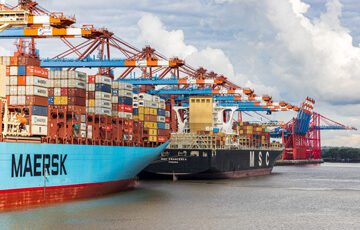Unforeseen circumstances under Dutch law are changed situations that did not exist when concluding an agreement and could not reasonably be anticipated by parties. These circumstances must be so significant that performance of the contract can no longer be expected from the counterparty according to standards of reasonableness and fairness under Article 6:258 of the Dutch Civil Code.
Dutch contract law maintains a firm starting position: agreements are binding. This principle, legally designated as pacta sunt servanda, means that contractual obligations must be respected. However, when such extreme changes occur during the term of an agreement that adhering to the original arrangements becomes unreasonable, Article 6:258 BW provides an exception.
Within the Dutch jurisdiction, courts apply strict criteria before intervening in contractual relationships. The legal framework distinguishes between normal business risks—which parties must bear themselves—and extraordinary circumstances that fundamentally alter the contractual balance. Creditors and debtors can both invoke this provision, making it more flexible than other legal instruments such as suspension or termination.
When Do Legal Professionals Recognize Unforeseen Circumstances in Dutch Law?
The Noord-Holland District Court recently formulated that circumstances must arise after conclusion of the contract. Moreover, parties may not have anticipated these developments when entering into the agreement. The interpretation of what was ‘foreseeable’ depends heavily on specific circumstances and contract wording.
Therefore, this statutory provision offers more flexibility than other legal remedies. The court receives authority to modify the agreement rather than proceeding directly to complete termination, which can benefit both contracting parties. However, judges exercise restraint—the Supreme Court emphasized in 1998 that contractual freedom and party autonomy take precedence.
What Conditions Must You Fulfill Under Netherlands Law?
Article 6:258 BW establishes three cumulative requirements:
- Changed circumstances: The situation must differ from contract conclusion
- Unforeseeable development: Parties could not reasonably account for this change
- Unreasonable maintenance: Adhering to the contract contradicts reasonableness and fairness
Crucial nuance: Courts proceed cautiously. An agreement must be performed even when this proves disadvantageous for one contracting party. Only in exceptional cases does the court intervene. The Dutch Supreme Court consistently maintains that contractual obligations remain binding unless truly extraordinary circumstances justify modification.
Consequently, businesses cannot simply claim unforeseen circumstances whenever market conditions deteriorate. The threshold remains deliberately high to preserve contractual certainty—a cornerstone of commercial relationships in the Netherlands.
How Does Legal Practice Function in the Dutch Jurisdiction?
Credit Crisis and Price Increases: Unsuccessful Invocations
Case law demonstrated great restraint for years. During the 2008 credit crisis, courts systematically rejected invocations of unforeseen circumstances. The ‘s-Hertogenbosch District Court ruled that even a 400% price increase for electricity constituted normal entrepreneurial risk. Commodity market fluctuations, however severe, qualified as inherent to business transactions.
Similarly, the Hague District Court determined that price fluctuations in commodity markets represent commonly known phenomena. The ‘s-Hertogenbosch Court of Appeal endorsed this position by stating that the energy market is inherently unpredictable. This consistent line in jurisprudence meant that entrepreneurs could rarely successfully invoke Article 6:258 BW for decades.
Statistical analysis reveals that between 2008 and 2019, Dutch courts rejected approximately 85% of claims based on unforeseen circumstances related to market volatility. This strict approach preserved contractual certainty but left businesses vulnerable during economic shocks.
Would you like certainty about your legal position regarding extreme price increases or market fluctuations? Our specialized lawyers in Amsterdam analyze your situation and advise on the best strategy within Dutch contract law.
COVID-19 Pandemic: Turning Point in Case Law Under Dutch Law
The COVID-19 pandemic marked a clear break. Courts quickly recognized that worldwide lockdowns and government measures qualified as unforeseen circumstances. In 75% of corona-related cases reaching courts, parties received favorable rulings. Particularly retail tenants who could not open their doors due to mandatory closures obtained entitlement to rent reduction.
The Supreme Court confirmed this direction in late 2021: government measures resulting from the corona crisis constitute unforeseen circumstances, at least for contracts concluded before March 2020. This judgment creates clarity but also emphasizes the time element—after the first lockdown, these developments no longer qualified as ‘unforeseen’.
Furthermore, the pandemic demonstrated that Article 6:258 BW serves as a safety valve during genuine crises. However, this exceptional treatment does not extend to normal economic downturns or predictable market developments.
What Does the War in Ukraine Mean for Contracts According to Dutch Legislation?
Recent Case Law Shows Shift
Since early 2022, discussion arose again regarding boundaries of unforeseen circumstances. The war in Ukraine, soaring inflation, the energy crisis, and worldwide price increases forced courts to reconsider. Multiple judgments from lower courts indicate a possible course change.
Important developments per sector:
- Construction Sector: The Arbitration Board for Building Disputes ruled on August 25, 2022, that price increases due to the war in Ukraine qualify as unforeseen circumstances. A contractor received modification of the construction agreement despite the UAV 2012 normally regulating cost-increasing circumstances.
- Energy Suppliers: Rotterdam District Court acknowledged on October 13, 2022, that explosively increased gas prices—more than tenfold within one year—can constitute unforeseen circumstances. Delivery under identical conditions would mean severe losses exceeding the discounted price risk.
- Municipal Contracts: The Noord-Holland District Court established on December 16, 2022, that consequences of the COVID pandemic and the war in Ukraine together undeniably form unforeseen circumstances, particularly due to explosively increased costs for building materials and energy.
Which Factors Do Courts Weigh in the Netherlands?
Preliminary relief judges consistently place three elements on the scale:
- Magnitude of price increase: Percentages between 300% and 1000% within twelve months
- Cause of development: External shocks such as geopolitical crises or pandemics
- Financial impact: Threatening losses exceeding normal entrepreneurial risk
For example: an Amsterdam-based company concluded a framework agreement in December 2018 for delivery of building materials at fixed prices. Due to the war in Ukraine, raw material prices increased 450% in early 2022. The court ruled that excessive cost increases should be distributed equally between both parties until a final judgment provides definitive resolution.
However, legal professionals caution that these judgments originated from preliminary relief proceedings, not substantive procedures. The Supreme Court has not yet issued definitive rulings on current geopolitical developments, creating ongoing uncertainty.
Can Your Business Invoke This Provision Under Netherlands Law?
Threshold Remains High Despite Recent Judgments
Although some lower courts recently appear more lenient, the legal bar remains high. The Supreme Court has not yet passed definitive judgment on current geopolitical developments. Therefore, uncertainty exists whether these judgments will withstand appeal.
Essential limitations:
- Article 6:258 paragraph 2 BW excludes the invocation when circumstances according to prevailing views fall within the debtor’s risk sphere
- General entrepreneurial risks such as market fluctuations normally fall under this category
- Poor business results generally do not justify contract modification
Rotterdam District Court illustrated this dilemma: a technical director claimed €365,000 based on a contractual severance arrangement. The employer cited the crisis in construction and his poor financial position as unforeseen circumstances. The court awarded only €40,000—equal to the social plan. Legally, this judgment remains disputed because poor market developments represent typical entrepreneurial risks.
How Can You Limit Risks in New Contracts According to Dutch Legislation?
Implementing Provisions: Essential from 2023
For agreements concluded after the first corona wave and certainly after February 2022, a new reality applies. Current geopolitical developments are now commonly known. Therefore, courts will be even more reluctant to honor invocations of unforeseen circumstances for new contracts.
Practical contract clauses that help:
- Price indexation clauses: Link prices to CBS index figures or specific commodity prices
- Hardship clauses: Define concrete threshold values (for example, 25% price increase within six months)
- Renegotiation obligation: Establish that parties negotiate in good faith during extreme developments
- Phased payments: Divide large projects into partial deliveries with price adjustment moments
Important caveat: you cannot contractually exclude Article 6:258 BW. This statutory provision is mandatory law. However, you prevent certain scenarios from qualifying as ‘unforeseen’ by explicitly incorporating them into the contract.
Consequently, modern commercial agreements in the Netherlands increasingly contain sophisticated risk allocation mechanisms. These provisions acknowledge economic volatility while maintaining contractual certainty—balancing flexibility against predictability.
Contact our law firm in Amsterdam for personal legal advice about your specific contractual situation. We assist you with drafting robust agreements that account for current economic volatility.
What Are the Procedural Aspects in the Dutch Jurisdiction?
Court Claim: Step-by-Step Plan
A party invoking unforeseen circumstances must actively approach the Dutch court. The procedure in the Netherlands proceeds as follows:
- Submit application: At the competent court, usually the district court of the respondent’s place of residence
- Substantiate change: Demonstrate plausibly that circumstances were unforeseen and extreme
- Present alternatives: Courts prefer modification over complete termination
- Pay court fees: low costs for individuals, higher for legal entities
The court can make three decisions:
- Modification: Adjustment of specific contract conditions (for example, prices, deadlines)
- Partial termination: Certain obligations lapse
- Complete termination: The contract ends with possible retroactive effect
Preliminary relief judges often apply provisional arrangements in summary proceedings. In 85% of these cases, substantive proceedings follow where definitive resolution occurs.
How Long Does a Procedure Take Under Dutch Law?
The average procedure regarding unforeseen circumstances lasts between six and twelve months. Court fees, lawyer costs, and procedural risks make this an expensive route. In 60% of cases, parties still reach amicable settlement during proceedings.
Dutch procedural law requires parties to demonstrate genuine attempts at negotiation before courts will consider modification requests. This emphasis on commercial reasonableness reflects the jurisdiction’s preference for party autonomy over judicial intervention.
What Role Does Reasonableness and Fairness Play in Dutch Law?
General Principles Govern Agreement
Article 6:248 BW determines that reasonableness and fairness (in Dutch: ‘redelijkheid en billijkheid‘) govern the relationship between creditor and debtor. The regulation of unforeseen circumstances forms a specific elaboration of this general principle. However, not every unforeseen situation justifies contract modification.
Courts test against three criteria:
- Balance disruption: Are performance and counter-performance still balanced?
- Goal achievability: Does the original contract objective remain attainable?
- Extremity: Has performance become extraordinarily disadvantageous?
An employee who negotiated a generous bonus arrangement cannot invoke unforeseen circumstances when his employer is acquired by a corporation wanting to modify this arrangement. Rotterdam District Court ruled that such business developments fall within the employer’s risk sphere.
Moreover, Dutch law recognizes that commercial parties possess expertise and resources to assess risks. This expectation influences how courts evaluate claims of unforeseeability—sophisticated businesses face stricter scrutiny than consumers or small enterprises.
How Do Unforeseen Circumstances Relate to Force Majeure in the Netherlands?
Distinction Between Two Legal Instruments
Although both concepts concern extreme situations, they differ fundamentally:
Force Majeure (Article 6:75 BW):
- Shortcoming not attributable to debtor
- Releases from compensation obligation
- Can be temporary or permanent
- Need not be ‘unforeseen’
Unforeseen Circumstances (Article 6:258 BW):
- Circumstances lay in the future at contract conclusion
- Leads to contract modification or termination
- Requires judicial intervention
- Sometimes limits force majeure invocation
Important advantage of Article 6:258 BW: the court receives scope for customization. With successful force majeure invocation, the obligation lapses completely, which often does not serve both parties’ interests. Contract modification offers more flexibility.
Additionally, force majeure typically provides temporary relief during crisis periods, while unforeseen circumstances enable permanent contractual readjustment. This distinction matters significantly when parties face long-term structural changes rather than temporary disruptions.
What Do Dutch Lawyers Expect for the Future According to Dutch Legislation?
Legal Uncertainty Continues Temporarily
Recent judgments from lower courts in the Netherlands create a tense legal situation. Previously, price increases and economic crises constituted entrepreneurial risk. Now some courts recognize that extreme geopolitical developments exceed this boundary.
Critical observations:
- All approvals came from preliminary relief judges in summary proceedings, not substantive procedures
- The Supreme Court must still provide resolution on the current situation
- Contradiction with earlier case law regarding credit crisis remains unexplained
- Internationally, developments have been known since early 2022
For contracts concluded after February 2022, geopolitical tensions, inflation, and energy prices almost certainly no longer qualify as ‘unforeseen’. Parties already possessed information about these risks and could account for them.
Recommendations for Entrepreneurs in the Netherlands
- Document carefully: Record what information you possessed at contract conclusion
- Maintain communication: Consult timely with your counterparty regarding problems
- Seek legal advice: Have your position analyzed before initiating procedures
- Renegotiate proactively: Often joint consultation produces better results than legal procedures
Legal experts emphasize that Dutch courts maintain their fundamental respect for contractual sanctity. The recent pandemic-era flexibility likely represents an exceptional response to unprecedented circumstances rather than a permanent shift in judicial philosophy. Businesses should not assume courts will routinely modify contracts due to adverse economic developments.
Furthermore, international commercial parties operating in the Netherlands must understand that Dutch contract law prioritizes predictability and certainty. This approach supports Amsterdam’s position as a major European business hub by ensuring reliable enforcement of commercial agreements.









